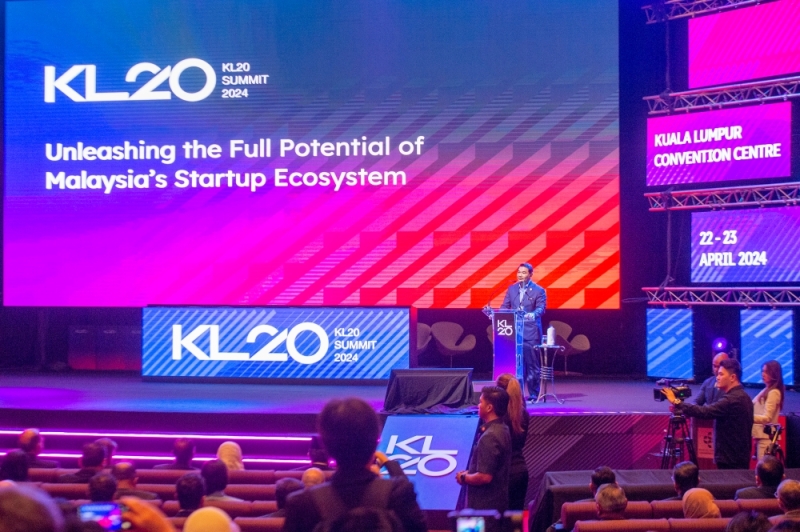
Economic minister, Rafizi Ramli delivers his speech during the KL Summit 20 at Kuala Lumpur Convention Centre on 22 April 2024. Picture by Shafwan Zaidon
Join us on our WhatsApp Channel, follow us on Instagram, and receive browser alerts for the latest news you need to know.
By Hajar Umira Md Zaki , Zurairi A.R. and Muhammad Yusry
Wednesday, 24 Apr 2024 7:00 AM MYT
KUALA LUMPUR, April 24 — The two-day KL20 Summit 2024 spearheaded by the Economy Ministry wrapped up yesterday, marking Putrajaya's latest step to establish the country in the top 20 global startup hubs by 2030.
During the summit, Prime Minister Datuk Seri Anwar Ibrahim launched the KL20 Action Paper, described as a roadmap outlining tangible reforms to bring together founders, venture capitalists (VCs), talent, incubators and accelerators.
Several initiatives were also announced set to attract startups, founders and VCs to set up shop in Malaysia in a bid to incubate high-quality local startups.
The summit saw three high-tech companies and 12 VCs announcing their presence in Kuala Lumpur, in addition to three sovereign and semiconductor funds pledging RM3 billion for the Asean Investment Initiative.
Advertisement
Malay Mail takes a look at the three biggest themes of the inaugural summit:
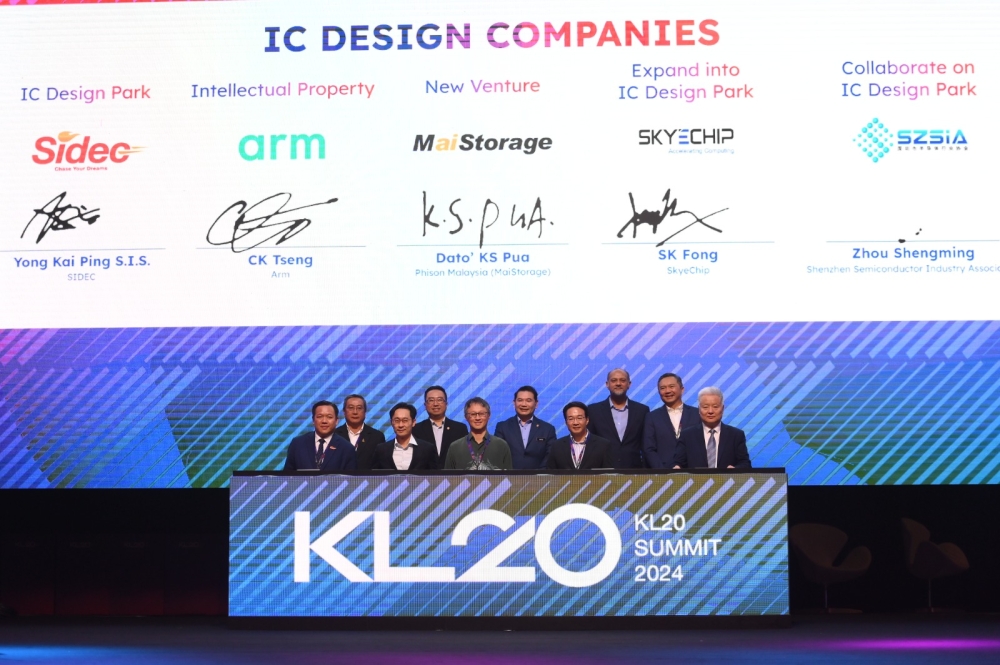
1. Putrajaya goes big on semiconductors and IC
Advertisement
Earlier this month, the World Economic Forum highlighted Malaysia as an emerging semiconductor and integrated circuit (IC) powerhouse — especially in Penang which attracted US$12.8 billion (RM61 billion) in foreign direct investment last year.
The investments by multinationals into Malaysia reportedly will reinforce Malaysia’s entrenched position in the late stages of the semiconductor supply chain, particularly chip assembly, testing and packaging, areas in which it holds a 13 per cent share of the global market.
This ambition has been backed by Prime Minister Datuk Seri Anwar who last week announced that the Ministry of Investment, Trade and Industry will draw up a comprehensive Semiconductor Strategic Plan to include a more attractive incentive package for strategic investments in high-tech semiconductors, particularly to encourage more front-end activities here.
On Monday, Anwar announced a major undertaking to strengthen Malaysia's position: Selangor Information Technology and Digital Economy Corporation’s (Sidec) Malaysia Semiconductor Accelerator and Integrated Circuit (IC) Design Park — touted to be the biggest in Southeast Asia.
Sidec chief executive officer Yong Kai Ping said the Puchong-based IC Design Park is expected to bring in economic returns between RM500 million to RM1 billion and will begin operations in July this year.
The park has roped in four partners including British semiconductor giant Arm Holdings, the Shenzhen Semiconductor Industry Association, Bayan Lepas-based IC designer SkyeChip Sdn Bhd, and Malaysia AI Storage (MaiStorage) — the latter being a new venture announced by Datuk KS Pua of Taiwan-based Phison Electronics Corporation, widely regarded as the "father of USB drives".
Malaysia specialist semi-conductor fund BlueChip Venture Capital was also among the three funds chipping in the Asean Investment Initiative.
Prime minister, Datuk Seri Anwar Ibrahim officiating the KL Summit 20 at Kuala Lumpur Convention Centre on 22 April 2024. Picture by Shafwan Zaidon
2. With golden passes, Malaysia courts global darlings and unicorns
In his keynote address, Economy Minister Rafizi Ramli announced a slew of incentives that would be applicable immediately as Malaysia pivots towards attracting global and regional unicorns — private startups that are valued at over US$1 billion (RM4.8 billion) — rather than just trying to breed one locally.
"The KL20 Action Plan outlines new initiatives that will accelerate the critical areas of a startup ecosystem: Capital, talent, and quality of startups," he said.
"The ambition is for Malaysia to be the choice destination for early-stage and growth capital; to be the centre for world-class entrepreneurs and skilled talent; and to be the home for world-leading startups looking to start, grow, and scale."
This included the Unicorn Golden Pass, which includes exempted fees for employment passes for senior management, subsidised rental, concessionary tax rates on corporate profits, relocation services, and a startup concierge that handles the backroom registration at the start.
To attract high-skilled talent, the Innovation Pass offers a multi-tier employment pass programme, while the VC Golden Pass offers limited partners funding access opportunities, subsidised office spaces, expedited licence registrations, and exempted fees for employment passes.
Putrajaya also announced the KL20 GPU Scheme, a rebate scheme for the use of cloud services and general-purpose computing on graphics processing units (GPUs), and promoting the Innovation Belt where startups, talents, investors, corporates, and academics can congregate in areas around KL Sentral and the Bukit Jalil's Technology Park Malaysia.
In addition, KL20 also highlighted the Startup City Connect linking KL and Hangzhou, China, akin to a special economic zone that promised seamless market access to grow and scale startups in both cities.
Economy Minister Rafizi Ramli (second left) and Science, Technology and Innovation Minister Chang Lih Kang (second right) during the launch of Majlis PraPeluncuran Acara Perdana KL20 at Parlimen Malaysia March 27, 2024. - Picture by Hari Anggara.
3. ... But how long would it take for local startups to reap benefits?
Putrajaya's change in strategy to focus on global and regional startups seems to be driven by the failure of Penjana Kapital Sdn Bhd and Malaysia Digital Economy Corp (MDEC) to groom five local unicorns since announcing the target in 2022. Online used car trading platform Carsome remains the country's only one.
In his speech for the soft launch of KL20, Rafizi pointed out that attracting high-quality startups and simultaneously VCs and sovereign funds to invest in the scene, would be a catalyst to grow the local scene as well.
"By attracting these disruptors into our ecosystem, we want to drive Malaysia up the value chain and demonstrate our ability to compete with the very best. It’s a simple message to the rest of the world: Malaysia is open for business in technology," Rafizi said last month.
However, there is also a sense that the impetus behind this is how Malaysia has lagged behind neighbouring Singapore and is at risk of being eclipsed by Indonesia, Thailand, and even Vietnam in the future.
"The fact is that we have experienced missed opportunities in technology investments, making it imperative for us to re-strategise and provide the best ecosystem to gain competitive advantage in attracting high-value investments," said Anwar in his launching speech.
There has also been grumbling from local founders who attended KL20, with some of these could be found in the comment section of Rafizi's post on the summit in his LinkedIn profile.
Engineer-turned-entrepreneur Vishnu Kanth, who founded household care provider Vidola, raised questions about whether the funds and VCs announced during KL20 would benefit local startups.
"Literally I can’t see any benefits to the local startups at KL20. Sorry. the panels were talking about billions and billions of investments
"I came with full excitement to get a chance to pitch or share our ideas and products but unfortunately the KL20 is for foreign funders and founders," he wrote, prompting support from other startup hopefuls.
Aizat Rahim, the founder of business-to-business marketplace Borong (formerly known as Dropee), told Malay Mail that more incentives can be offered to VCs rather than foreign unicorns.
"Malaysia has lots of great talents or entrepreneurs," he said, explaining that unicorns such as Carsome and Grab — which shifted operations from Kuala Lumpur to Singapore — still rely on Malaysia for their profits.
"But we Malaysians entrepreneurs are lacking the support from an investment perspective compared to our neighbouring countries. By bringing in more VCs into the scene, generally, it'll create more local startups or entrepreneurs founded from, or based out of Malaysia — which will create a better outlook in general."

.png) 1 week ago
1 week ago

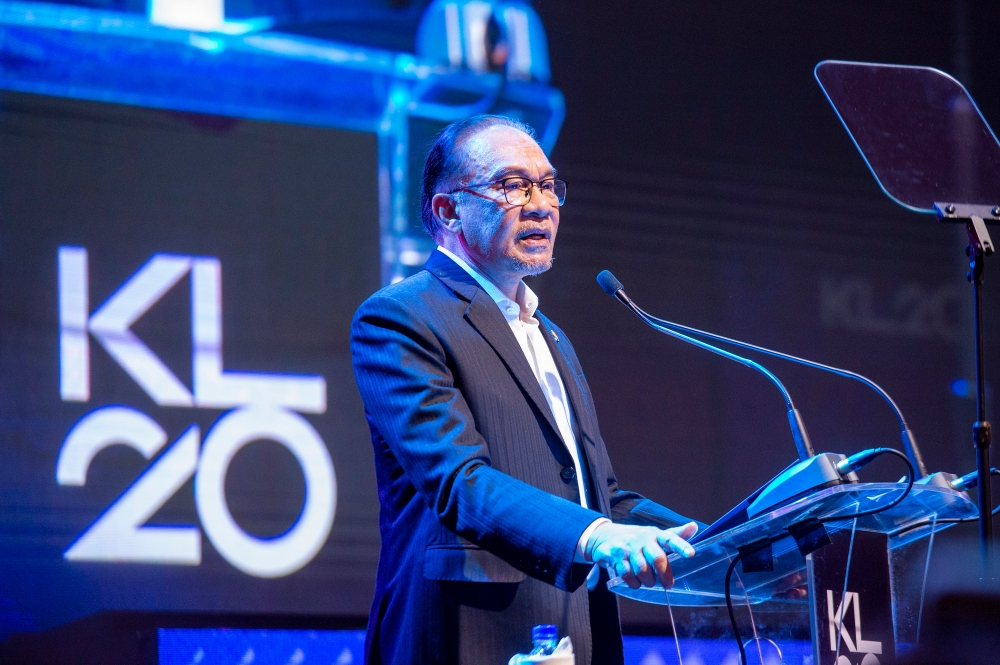
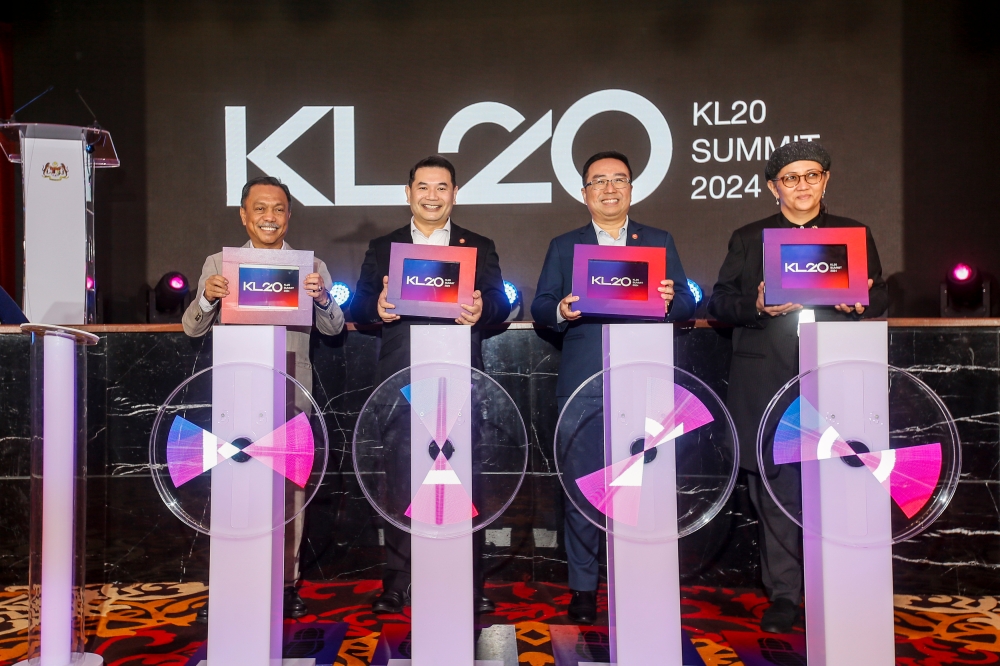
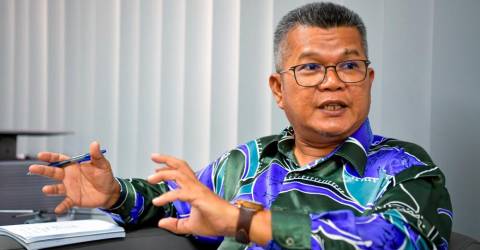

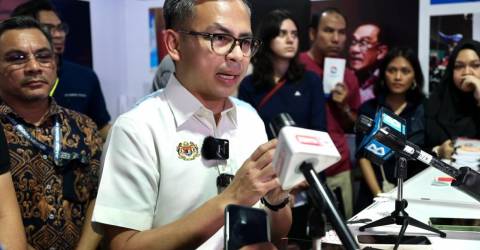












 English (US) ·
English (US) ·